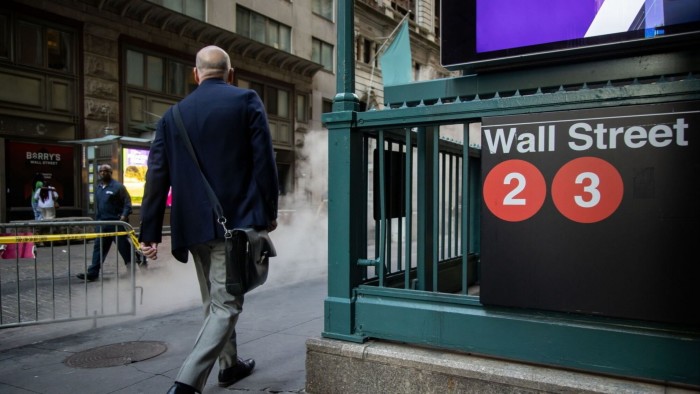Unlock the White House Watch newsletter for free
Your guide to what Trump’s second term means for Washington, business and the world
Investors are scooping up funds holding the debt of highly rated US companies at the fastest rate in almost five years, underscoring how markets remain sanguine despite signs the American economy is cooling.
US exchange traded funds and mutual funds holding investment grade bonds recorded roughly $11.6bn of inflows from July 30 to August 6, according to data provider EPFR. That marked the fifth highest weekly inflow on record and the most since late 2020, according to JPMorgan.
The strong inflows came despite a series of reports signalling that US economic growth and hiring have cooled in recent months. Donald Trump’s sweeping tariffs on trading partners also came into effect on Thursday.
Still, a series of trade deals with Japan, the UK and the EU has eased trade-war fears in recent weeks.
“As things have settled, some of those tail risks are fading,” said Sarang Kulkarni, lead portfolio manager for global credit at Vanguard. Measures by big companies to strengthen their balance sheets in recent years had helped improve corporate fundamentals, he added.
Borrowing costs for highly rated, or investment grade, US companies have receded significantly since April, when yields surged as Trump’s “liberation day” tariff announcement shook markets. The spread, or premium investors demand to hold corporate bonds over Treasuries, is now 0.8 percentage points — nearly the lowest level since the late 1990s.

This rally in credit has been part of a broader advance in riskier assets that has also taken Wall Street stocks to a series of record highs while buoying junk bonds and leveraged loans, as a series of trade deals help head off a more severe trade war and its economic fallout.
Gauges of volatility for both equities and debt jumped in April but have steadily crept down in the intervening months.
But some investors have warned that current market levels are too benign given the challenges to the US economy underlined by last week’s dire job numbers.
“I think we’re going to see potentially substantially weaker [US] growth than we saw in the first few months of this year,” said Mike Riddell, a fund manager at Fidelity International. Risk assets such as credit and stocks were “factoring in very little volatility, or negligible chance of anything going wrong”, he said.
“I think markets are wrong to be as positive on global growth as they currently are.”
